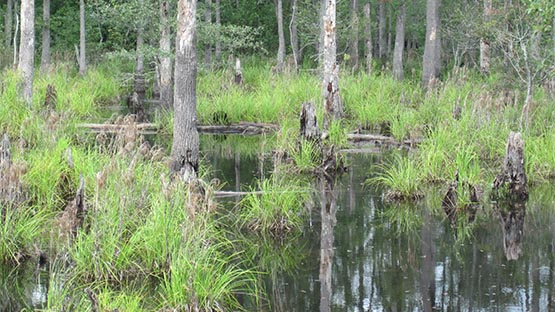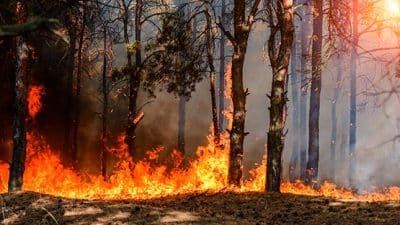
A Virginia state project to acquire nearly 2,000 acres of contiguous forest in Suffolk for biodiversity conservation and future public access received a $5.6 million federal grant from the National Oceanic and Atmospheric Administration.
The funding is provided by the Bipartisan Infrastructure Law and the Inflation Reduction Act, through NOAA’s Climate Ready Coasts initiative.
The Virginia Department of Conservation and Recreation, with support from Virginia Department of Environmental Quality’s Virginia coastal zone management program, is looking to protect one of the largest unprotected blocks of contiguous forest in the Albemarle-Pamlico watershed region, which includes nearly 250 acres of freshwater wetlands and 10 miles of stream reaches.
The 1,900-acre property would be dedicated as part of Virginia’s natural area preserve system and managed by the Virginia Natural Heritage Program.
“This important project will conserve a key expanse of land that is mapped in Virginia’s Wildlife corridor action plan, which will help to improve water quality in the Chowan River basin and the nationally significant Albemarle-Pamlico estuary,” said DCR Director Matthew Wells. “We’re also excited about the prospect of ultimately bringing opportunities for paddling and hiking to a currently underserved region – in line with our goals of increasing public access to the great outdoors in Virginia.”
The site presents the opportunity to restore and expand native longleaf pines savannah ecosystems in southeast Virginia, according to Jason Bulluck, director of the Virginia Natural Heritage program.
“Located between DCR’s South Quay Sandhills Natural Area Preserve and the Great Dismal Swamp National Wildlife Refuge, this property is within one of the state’s most significant hotspots of biodiversity, with more than 100 species of high conservation need,” said Bulluck.
Partners include The Nature Conservancy, the Albemarle-Pamlico National Estuary Partnership and the Virginia Coastal Zone Management Program.
The grant supports seeking dialogue with tribal nations who have ancestral ties to the region about the conservation and management of the land. Research will be done on the history of tribes with ancestral and present-day connections to the region and watershed.
“We are happy to embark on this ambitious project that will increase collaboration in our shared waterways of the Albemarle-Pamlico region, and ensure tribal communities are included in decision making that will conserve this important ecosystem for generations to come,” said Dr. Bill Crowell, APNEP director.
APNEP, a federal-state program hosted by the North Carolina Department of Environmental Quality, has launched Tribal Coastal Resilience Connections, which supports tribal communities in the region in considering climate resilience during community planning.










